Table of Contents
Initial Application Review
The first step in screen potential tenants is reviewing their rental application. Property managers collect important details such as personal information, rental history, employment details, and income. Applications are checked for completeness and consistency.
- Key Details: Name, contact information, and identification.
- Rental Preferences: Desired move-in date, lease term, and any special requests.
Incomplete or poorly filled applications can be an early indicator of a disorganized or unreliable tenant.
Credit Check
Credit checks are crucial for understanding a tenant’s financial responsibility. Property managers use this step to assess how well applicants handle debt and monthly obligations.
- What Property Managers Look For: Credit scores, payment history, outstanding debts, and any accounts in collections.
- Minimum Credit Standards: Some property managers set a minimum credit score requirement, often around 600-650, though this varies by property type and location.
Late payments or significant debt may signal financial instability, while a strong credit history indicates a responsible tenant.
Income and Employment Verification
Property managers verify that tenants have a stable source of income to afford the rent. The industry standard is that a tenant’s income should be at least 3 times the monthly rent.
- Verification Methods: Pay stubs, tax returns, employment letters, or bank statements.
- Employer Contact: Property managers may contact the employer directly to confirm job stability and income.
This step ensures the screen potential tenant has the financial capacity to meet rent obligations consistently.
Rental History Check
A screen potential tenant’s rental history provides valuable insight into their behavior as a renter. Property managers contact previous landlords to gather information about the applicant’s past tenancy.
- Questions to Ask Previous Landlords: Did the tenant pay rent on time? Did they follow lease terms? Was there any property damage or complaints?
- Eviction History: Property managers check for any past evictions, as this can be a major red flag.
Reliable feedback from former landlords is one of the best predictors of future tenant behavior.
Background Check
A background check ensures that tenants meet safety and legal criteria. This step often includes:
- Criminal Record Check: Property managers look for criminal history to maintain a safe environment for other tenants.
- Sex Offender Registry: In some jurisdictions, checking against the registry is a standard part of screening.
- Civil Court Records: This includes lawsuits, judgments, or disputes involving the applicant.
Property managers must follow local laws and regulations when conducting background checks, ensuring they comply with Fair Housing and privacy laws.
Interview Process
Some property managers conduct interviews with potential tenants to get a sense of their personality, lifestyle, and fit for the property.
- Common Questions: Why are you moving? Do you have pets? How many people will be living in the unit?
- Soft Skills Assessment: Communication, honesty, and responsiveness during the interview are evaluated.
This personal interaction can help identify any discrepancies in the application or highlight additional red flags.
Red Flags to Watch
Throughout the screening process, property managers are trained to look for potential warning signs, such as:
- Inconsistent or incomplete information on the application.
- Past evictions or unpaid rent.
- Poor communication or difficulty providing requested documentation.
Identifying these issues early helps property managers avoid potential problems down the line.
Final Tenant Approval
After completing the screening process, property managers evaluate all the information to make a final decision. Factors considered include:
- Completeness and accuracy of the application.
- Ability to meet financial requirements.
- Positive feedback from landlords and employers.
Once approved, tenants are notified, and the lease agreement is prepared. This thorough process ensures the property is rented to responsible and reliable individuals.
Table of Contents (Continued)
Fair Housing Laws and Screening
Property managers must comply with federal and local Fair Housing laws during the tenant screening process. These laws prohibit discrimination based on protected classes such as race, religion, national origin, sex, disability, or familial status.
- Consistency: All applicants must be evaluated using the same criteria to ensure fairness.
- Reasonable Accommodations: Property managers must make reasonable accommodations for tenants with disabilities, such as allowing service animals even in no-pet properties.
Violating Fair Housing laws can result in legal penalties and damage to a property manager’s reputation, making compliance a top priority.
Automated Screening Tools
Modern property managers often use automated tools to streamline and enhance the tenant screening process. These tools provide quick, accurate data on applicants.
- Background Check Software: Platforms like TransUnion’s SmartMove or RentPrep offer instant background and credit reports.
- Online Applications: Digital application systems ensure accurate data collection and seamless submission.
- Risk Assessment Algorithms: Automated tools can evaluate multiple factors, such as credit, income, and rental history, to generate a risk score for each applicant.
These tools save time, reduce human error, and allow property managers to make faster decisions while maintaining a thorough vetting process.
Importance of Documentation
Proper documentation is critical for protecting property managers and ensuring the screening process is defensible if disputes arise.
- Records of Applications: Keep a file for every applicant, including their application, credit reports, and any communication.
- Written Criteria: Clearly outline tenant requirements, such as income thresholds and acceptable credit scores, to maintain transparency.
- Legal Compliance: Documentation ensures the property manager can demonstrate adherence to Fair Housing laws and other regulations.
Thorough record-keeping provides clarity and protection in case of tenant disputes or legal claims.
Ongoing Monitoring After Move-In
Screening doesn’t stop once a tenant moves in. Property managers monitor tenant behavior to ensure continued compliance with lease terms and property rules.
- Regular Inspections: Periodic property inspections help verify that tenants are taking care of the property and adhering to their lease.
- Payment Monitoring: Consistent rent payments are tracked to identify financial issues early.
- Communication Channels: Open lines of communication allow tenants to report issues, helping managers address problems promptly.
By maintaining oversight, property managers can address potential issues before they escalate, protecting the property’s value and maintaining tenant satisfaction.
Learn how we screen tenants, click here


